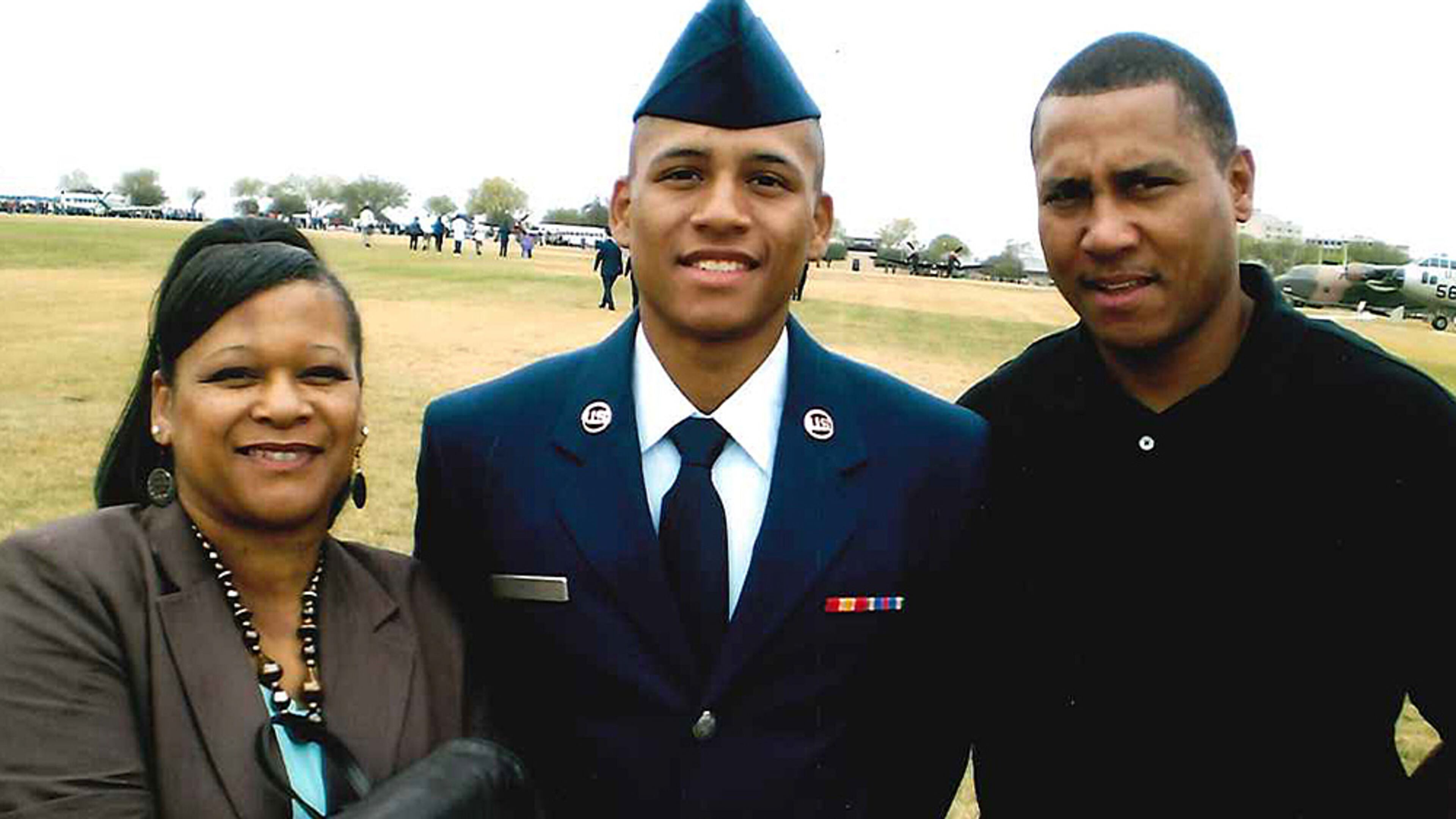
This article is an updated version of a report that appeared in the AJC in July.
Anthony Hill was a veteran of the war in Afghanistan -- a former police intern with no major run-ins with the law -- who was medically discharged in April 2013 after being diagnosed with bipolar disorder.
His struggles to find the right medication may have led Hill to strip nude on March 9, 2015, outside his Chamblee apartment, where he would encounter DeKalb Officer Robert Olsen, sent to the scene after a resident called 911.
Approximately five minutes later, Hill, still naked and obviously unarmed, was shot twice after ignoring Olsen's commands to stop.
Olsen was indicted Thursday on six counts in connection with Hill's shooting, including two counts of felony murder.
Upon his discharge, Hill was plagued by nightmares, said his roommate, Kailan Alexander.
"You have a child coming at you with a an assault rifle, with a bomb ... these are things you can't forget, " said Alexander, one of the few people in whom Hill confided about his tour in Afghanistan. "Anthony loved children, and children loved Anthony."
Seeing them die took a heavy toll. Hill was prescribed Lamictal, used to delay mood episodes in adults who are bipolar or suffer from manic depression.
The medication had adverse effects, his friends said. His tongue would swell and his jaw often locked, said Hill's girlfriend, Bridget Anderson.
"He was a musician, so that wasn't going to work," she said.
He sought medical assistance but often encountered significant roadblocks. One time, he arrived for an appointment at the Veterans Administration hospital in DeKalb only to find it had been scheduled for a facility in Texas, Anderson said.
"He'd try to call and be on hold for five hours, " she said.
"This country failed the love of my life, " Anderson said. "Not just the police, but the VA."
About two weeks before his death, Hill stopped taking the Lamictal. Whether he had begun retaking the drug is unclear, but something caused him to act out of character, Anderson said.
"Anthony was very modest," she said. "He didn't even like to walk around with his shirt off."
At a press conference after the shooting, DeKalb Police Chief Cedric Alexander said Hill "charged" Olsen, a seven-year veteran of the force.
"The officer called to him to stop, while stepping backward," Alexander said. "He then drew his weapon and fired two shots."
Alexander said the officer was equipped with a Taser and pepper spray but apparently chose to bypass those nonlethal options.
Attorney Christopher Chestnut, who represents Hill's family, conducted his own investigation.
Chestnut's investigator, Eric Echols, said he interviewed three witnesses who relayed virtually identical accounts. The 911 caller told him she called seeking paramedics, but a DeKalb police spokesman said the call was dispatched as a suspicious person report.
When Olsen arrived at the Chamblee Heights apartments, Hill was kneeling on the ground, as if in prayer, about 183 feet away, Echols said. Olsen remained in his vehicle for roughly three to five minutes, possibly awaiting backup.
Hill made the first move, according to three witnesses interviewed by Echols, trotting toward Olsen's patrol car. Those same witnesses observed the officer exit the vehicle and retreat to its rear, gun drawn. Hill's pace slowed as he neared the officer, but all accounts confirm that he ignored the officer's commands to stop.
He was within three to five feet of Olsen when the officer fired, Echols said.
Moments later a second patrol car arrived. By then Hill was dead.
Hill, who once interned with the Berkeley County Sheriff's Office in his native Moncks Corner, S.C., was a staunch defender of law enforcement, said Anderson, his girlfriend.
“We got in a lot of heated arguments about this, " Anderson said. “But he always believed the best about people. He was always spreading positivity.”


